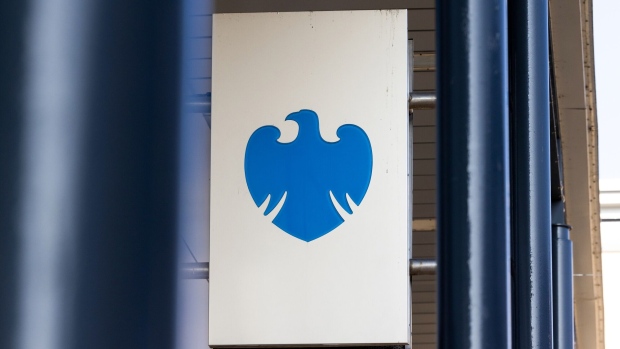Dec 5, 2023
Barclays Shares Fall After Qatar’s Wealth Fund Reveals Stake Cut
, Bloomberg News

(Bloomberg) -- Barclays Plc shares slumped after Qatar’s wealth fund sold almost half of its stake, a surprise move that adds pressure on Chief Executive Officer C.S. Venkatakrishnan just months before he unveils a new strategy for the British bank.
Qatar Investment Authority didn’t give a reason for the sale, which was announced after the market closed on Monday. The sovereign wealth fund has held a stake in the UK bank since at least 2008, during which time Barclays shares have lost more than half their value.
The sale adds to the urgency facing Venkatakrishnan, who’s overseen Barclays for two years. The stock now trades at a paltry price-to-book ratio of about 0.38, which implies investors don’t believe the bank’s assets are worth as much as the company says.
Executives have considered a range of options as they weigh a new strategy for the British banking giant, from expanding its advisory business to acquiring a wealth manager, people familiar with the matter have said. The company is planning to update investors on that process in February and Venkatakrishnan has promised he would also outline the firm’s long-term plans for boosting productivity and efficiency.
“The timing is slightly odd and it’s hardly a ringing endorsement ahead of the investor update,” said Adam Terelak, an analyst at Mediobanca.
A Barclays spokesperson declined to comment. A representative for the QIA didn’t respond to a request for comment.
Share Sale
Qatar Holding LLC, which is owned by the QIA, sold 361.7 million shares in the British firm, according to the terms of the Monday offering seen by Bloomberg News. The sale priced at 141 pence a share and raised £510 million ($644 million).
Barclays shares were trading 2.5% lower at 139.4 pence in London at 2:37 p.m. in London. The firm’s shares have slumped more than 10% so far this year, compared with the 6.3% advance of the FTSE All-Share Banks Index.
Deep-pocketed Middle Eastern shareholders have become a familiar feature at European banks after a series of investments they made during the 2008 financial crisis.
Barclays turned to QIA and a bevy of other investors across the Middle East and Asia in June 2008 as it sought to boost capital that had been depleted by credit-related writedowns. At that time, the investment gave the QIA, which was set up in 2005 to manage the Gulf state’s assets and help diversify its economy, a 6.4% stake in Barclays.
Just months later, the bank announced it would raise additional money from Qatar in order to avoid a UK government bailout plan that called for overhauling management and banning dividend payouts. The second offering included convertible notes and preferred stock on top of a share sale, meaning Qatar invested about £4 billion in the British bank.
Barclays shares had quadrupled the following year and QIA exercised warrants that netted the firm $1 billion at the time. A 2022 US filing showed it trimmed its stake in 2021, a year when the bank’s share price jumped more than 27%.
More recently, though, Barclays shares have suffered. The firm’s stock is now down 57% since July 2008, when the QIA first disclosed a stake.
The emergency fundraising also became a legal headache.
Last year, the Financial Conduct Authority said it planned to fine Barclays £50 million for failing to disclose an agreement to pay advisory fees to Qatari investment vehicles during the fundraising efforts. The bank has said it plans to challenge the regulator’s proposal. Former executives at Barclays were cleared of fraud in connection with the transactions in 2020.
Other Holdings
In Germany, the wealth fund’s former chief executive officer, Sheikh Hamad bin Jassim bin Jaber Al Thani, known as HBJ, owns a stake of just over 3% in Deutsche Bank AG. An entity controlled by former emir Sheikh Hamad Bin Khalifa Al Thani holds the about same amount after HBJ transferred half his holdings to him in 2015.
The QIA was also a long-term backer of Credit Suisse, with a 6.8% stake, and had raised its stake in the Swiss lender just months before it collapsed in March.
While the reasons for the Barclays stake sale weren’t immediately clear, the turmoil at Credit Suisse prompted the QIA to start a review of its bank holdings, Bloomberg reported at the time.
Before that, it had already been trimming stakes in listed trophy assets and turning to closely-held technology companies in growth markets as part of a strategy shift. Last year, for instance, it pared back positions in blue-chip names including Glencore Plc.
Read More: Qatar’s $450 Billion Wealth Fund Shifts From Trophies to Tech
--With assistance from Steven Arons, Myriam Balezou and Adveith Nair.
(Updates with details of QIA’s investments in final paragraph.)
©2023 Bloomberg L.P.






